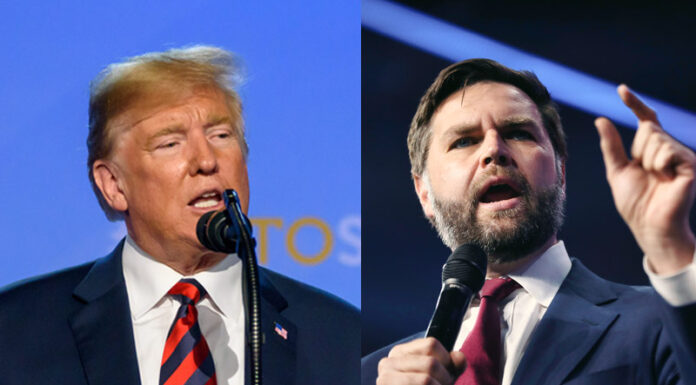President Donald Trump has given his strongest endorsement yet for Vice President JD Vance to lead the Republican Party’s future, indicating Tuesday, August 5, that Vance is “most likely” to become the heir apparent to the Make America Great Again movement following Trump’s second term.
Speaking to reporters after signing an executive order establishing a White House task force for the 2028 Summer Olympics in Los Angeles, Trump addressed questions about his political successor. “Well, I think most likely, in all fairness, he’s the vice president,” the President responded when asked whether Vance represented MAGA’s heir apparent.
The endorsement marks a significant shift from Trump’s previous reluctance to name a successor. In February, Trump had described Vance as very capable but maintained it was too early to designate him as the leading candidate for 2028. Tuesday’s comments represent the furthest Trump has gone in backing his Vice President’s political future.
Trump also floated the possibility of a joint ticket between Vance and Secretary of State Marco Rubio for the 2028 Republican primary. Trump suggested that Rubio might get together with Vance in some form, while acknowledging other talented individuals within his administration, including Homeland Security Secretary Kristi Noem and Attorney General Pam Bondi, who were present at the event.
The 40-year-old Vance has assumed an increasingly prominent role in Trump’s second administration, serving as a key diplomat and top surrogate for the President’s foreign policy initiatives. The former Marine and Ohio Senator has carved out a substantial position within the administration, often involving himself in the government’s key priorities during their most challenging phases.
Rubio, who competed with Vance for the vice presidential nomination during the 2024 campaign, has since developed a close working relationship with his former rival. The former Florida Senator has gained significant influence in the administration, becoming the first person since Henry Kissinger to simultaneously serve as both Secretary of State and National Security Adviser. Last month, Vance told CNN that Rubio is extremely competent and reliable, describing him as one of his closest friends in the administration.
Rubio previously indicated his support for Vance’s potential 2028 candidacy, describing him as a great nominee and praising his performance as Vice President. However, Rubio has not ruled out his own presidential ambitions, noting that the future remains uncertain. The Secretary of State had brushed off discussions about entering the 2028 race by emphasizing his hope that Vance would pursue the nomination while acknowledging it remains early in the process.
Vance’s political trajectory represents a remarkable transformation from his earlier positions. The freshman Senator from Ohio was selected from a crowded field for the vice presidential role, despite having previously described himself as a Never Trump supporter and making harsh criticisms of the President. During his pre-political career, Vance had referred to Trump as America’s Hitler and criticized him as reprehensible, reflecting the significant evolution in their relationship.
The endorsement comes as Trump continues to navigate questions about his own political future. During a Tuesday interview with CNBC, Trump initially expressed interest in seeking a third term, claiming he had the best poll numbers of his career. However, the President later acknowledged he would probably not run again, recognizing the constitutional prohibition on serving more than two terms as outlined in the 22nd Amendment.
Trump’s influence within the Republican Party carries significant weight for any potential 2028 successor. As party leader, his endorsement would likely position any candidate as the early front-runner in the Republican primary race. The President’s decision to publicly signal his support for Vance while suggesting a potential partnership with Rubio indicates his strategic thinking about the party’s future leadership structure.
Political observers note that Vance’s appeal has solidified among conservative voters, though polling suggests his popularity has declined with moderate and liberal voters since assuming office. His increasing visibility in handling the administration’s most challenging issues has positioned him favorably with the MAGA base, though questions remain about his broader electoral appeal beyond the Republican Party’s core supporters.
The timing of Trump’s endorsement coincides with ongoing political challenges facing the administration, including the handling of various domestic and foreign policy issues. Vance’s willingness to take on high-profile assignments and defend the administration’s positions has demonstrated his loyalty to Trump’s agenda while positioning him as the likely standard-bearer for the movement’s future direction.








